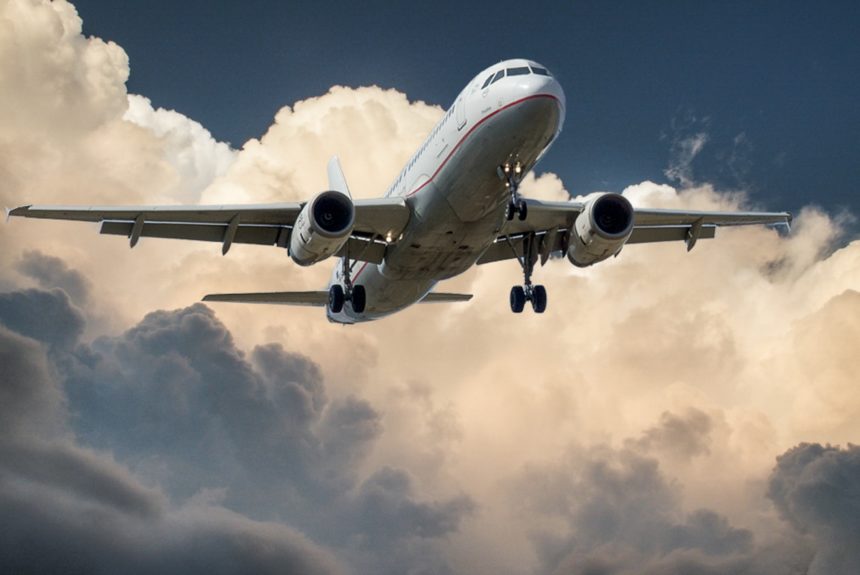By Nathalie Voit
AirAsia’s recent implementation of digital solutions to its flight operations is a model for sustainability in the aerospace industry. The airline has introduced an in-flight navigation system called OptiFlight that is powered by artificial intelligence to optimize route navigation and flight patterns in commercial flights. This optimization will reduce AirAsia’s carbon footprint and improve fuel efficiency in all its flights. The software is developed by Paris-based Safety Line and marks a paradigmatic shift in how the airline industry approaches the problem of climate change.
Among the new digital initiatives implemented by AirAsia as part of the OptiFlight-In-flight guidance system is a fuel efficiency solution known as OptiClimb. OptiClimb improves the fuel consumption of aircraft during the climb-out phase (typically the most complex and fuel-consuming phase of a flight). The software uses machine learning alongside 4D weather forecasts to predict fuel burn and optimal climb speeds for pilots in individual flights. The move will help the airline save up to 3% of fuel during each flight, a solution that could reduce the company’s carbon footprint by at least 73,000 tons of CO2 annually.
“AirAsia is making every effort to improve its operational efficiency and OptiFlight will allow us to leverage vast amounts of flight data with the aim of reducing CO2 emissions, said AirAsia Group Chief Operations Officer Javed Malik. “Needless to say, we are excited to be the very first airline to implement OptiClimb in Asia and we continue to look at new ways to innovate and further reduce our carbon footprint.”
The move is significant since the climb-out phase alone can account for over 30% of the trip fuel on AirAsia’s medium-haul commercial flights. Machine learning solutions that target the initial climb phase to minimize fuel consumption offer the most potential for CO2 savings. The improved fuel efficiency of aircraft powered by OptiClimb ultimately translates into reduced operational costs for airlines, a significant advantage in an industry where fuel prices account for 15% to 20% of airlines’ total operational costs.
More recently, SITA, the world’s leading IT provider for the air transport industry, forged a partnership with Safety Line. As part of the new collaboration, SITA offers Safety Line’s entire in-flight navigation system through their ‘Digital Day of Operations Portfolio.’ The company announced the partnership following Safety Line data that shows possible fuel savings of 5-6% for each flight. This sum could amount to millions of dollars of saved operational expenses in addition to 5.6 million tons of CO2 reduction if all airlines were to implement OptiClimb into their systems.
Not only can AI-powered dynamic flight path modeling help reduce fuel consumption, but other cutting-edge aerospace initiatives like the Airbus’ Fello’fly Project are exploring new ways to tackle CO2 emissions via innovative advances in autonomous flight. Novel developments in quantum computing will enable engineers to better improve aircraft safety and design. The recent breakthroughs in quantum computing, aerospace engineering, and AI reveal the momentum behind the sustainable aviation movement and are evidence of the free market’s competence and innovative prowess.
Worldwide, the aviation industry accounts for 2% of all man-made carbon emissions. Air transport alone is responsible for approximately 12% of CO2 emissions from all sources of transport. In 2019, 4.5 billion passengers boarded commercial aircraft and 915 million tons of CO2 were generated in commercial flights. As the aerospace industry looks to the future, airlines must increasingly innovate and adopt sustainable solutions to meet the world’s climate needs. An aerospace industry predicated on a commitment to sustainability and innovation will be one that resonates with the market and environmentally-aware consumers alike.
Nathalie Voit is a freelance content creator and a graduate of the University of Florida. She is an alumni of The Heritage Foundation’s Young Leaders Program.
The views and opinions expressed are those of the author’s and do not necessarily reflect the official policy or position of C3.
